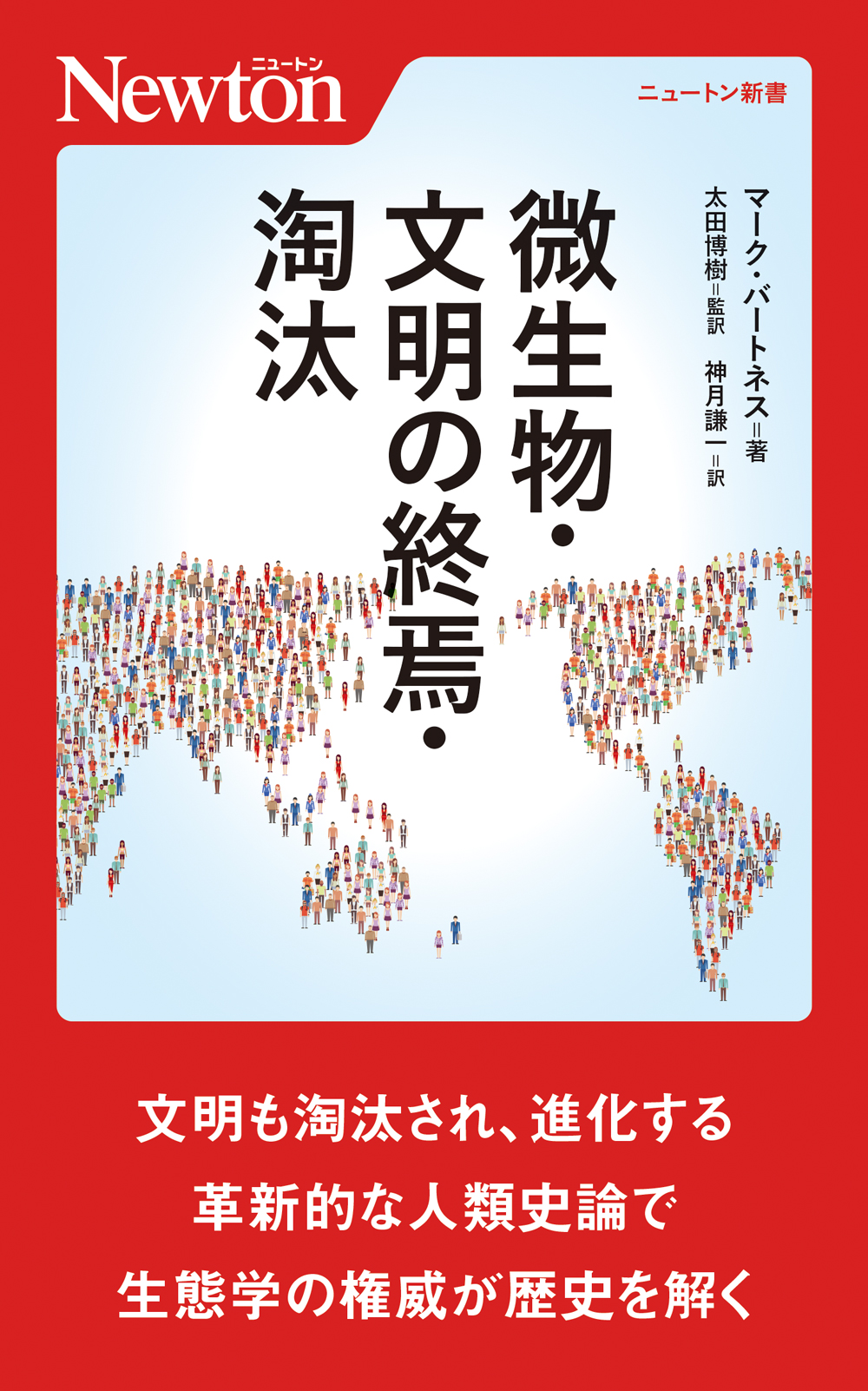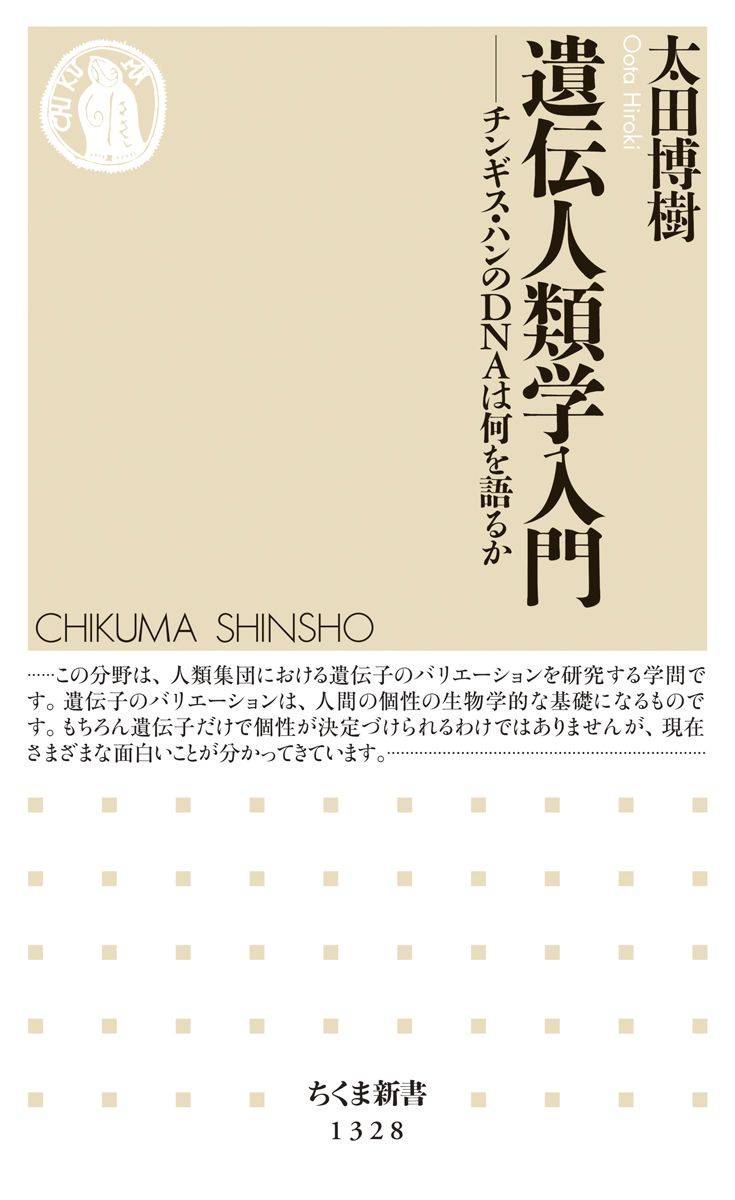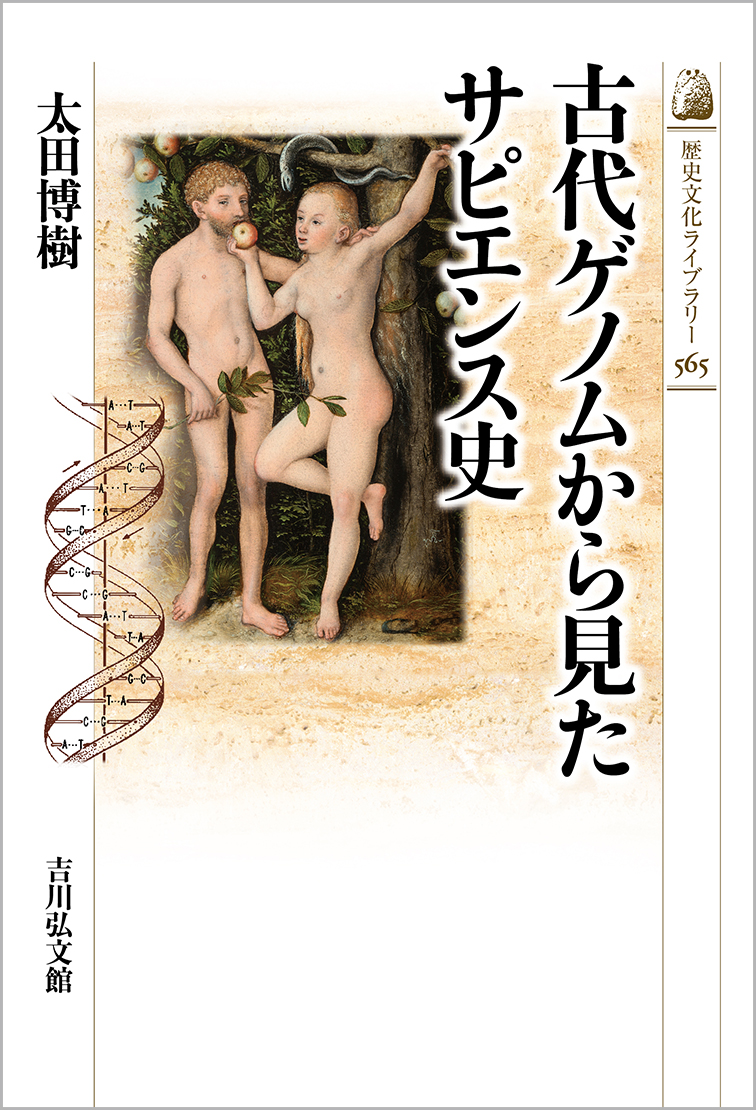
Title
Newton Shinsho Biseibutsu, Bunmei no Shuen, Tota (A Brief Natural History of Civilization)
Size
464 pages
Language
Japanese
Released
June 15, 2022
ISBN
978-4-315-52561-8
Published by
Newton Press
Book Info
See Book Availability at Library
Japanese Page
The author of this book, Mark Bertness, is a marine ecologist. I supervised the translation of the manuscript, which was translated into Japanese by Kenichi Kozuki, a translator. The original title of this book is "A Brief Natural History of Civilization", which is quite different from the Japanese title. In the course of this supervisory translation, Kozuki-san and I called the manuscripts under the tentative title "SHIZENSHI." However, the publisher's intention (probably a marketing strategy) led to this Japanese title "Microbes, the End of Civilization and Selection." The author talked about the microbes, the end of civilization, and selection, but "microbes" and "selection "in particular are not KEY in the context. The publishers have the right to decide on the title of the book, so I don't mean to say anything about that, and I don't mind, but considering the content of the book, I believe that "SHIZENSHI" is a better fit.
In general, "natural history" is often translated as "HAKUBUTSUGAKU" or "HAKUBUTSUSHI." The reason why Kozuki-san and I called the manuscript "SHIZENSHI" was because it was more appropriate to deliberately translate "natural history" as "SHIZENSHI" in contrast to "human history," and this was because this book placed "human history" within "natural history" and discussed it. This was because the book discussed "human history" in the context of "natural history." This is stated by the author, Bertness, in his Introduction.
“Rather than splitting our conception of history between natural history and human history, then, I read the history of civilization as natural history, continuing the trajectory that writers such as Jared Diamond and Yuval Harari have begun. This means understanding how civilization and its products—from agriculture and medicines to political hierarchies and religious systems—have been derived from our evolutionary past within specific ecologies and environments.”
The “Microbes” in the Japanese title are not KEY in themselves. This is because the core of the book is the idea, reiterated by Bertness in the book, that human's oldest evolutionary partners are the microbes living on our skin and in our bodies, acting as defense walls and buffers against disease, i.e. that the microbes are 'symbiotic' with humans is KEY. The belief that marine ecologist Bertness has arrived at through his years of research is that 'all life on Earth, including human civilization, is developed and governed by the same physical and biological processes that run through evolutionary history', and that these processes are 'symbiogenesis' and 'hierarchical self-organization.'
Symbiogenesis is the phenomenon of an organism symbiotically coexisting with another organism to become one organism. For example, mitochondria in eukaryotic cells were originally independent organisms, but during evolution they became 'intracellularly symbiotic.' Bertness discusses the idea by Lynn Margulis, extending it to human civilization. The book originally had a subtitle, "Why a Balance Between Cooperation & Competition Is Vital to Humanity," which has also been removed in the Japanese translation. The essence of the book is rather summed up in this subtitle.
(Written by OOTA Hiroki, Professor, Graduate School of Science / 2023)
Table of Contents
Acknowledgments
Introduction: Why Natural History?
Part I Life: Where we came from
1. Cooperative Life
2. Life in the Food Chain
3. Taming Nature
Part II Civilization: Who we are
4. The Triumph and Curse of Civilization
5. Resource Exploitation
6. Famine and Disease
7. Domination versus Cooperation
Part III Fate: Where we are going
8. Our Ethnocentric, Entheogenic Universe
9. Preserving Food and Improving Health
10. Civilization on Fire
11. Unnatural Nature
Epilogue: The Natural History of Civilizations
Related Info
A Brief Natural History of Civilization - Why a Balance Between Cooperation & Competition Is Vital to Humanity by Mark Bertness (published by Yale University Press, in April 21, 2020)
https://yalebooks.yale.edu/book/9780300245912/a-brief-natural-history-of-civilization/



 Find a book
Find a book




